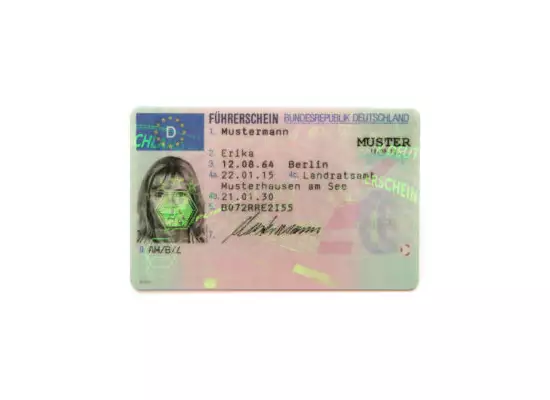German Driver’s License – How to Apply, Requirements, and Online Services
German Driver’s License – How to Apply, Requirements, and Online Services
Blog Article
The German driver’s license (copyright) is a vital document that authorizes individuals to operate vehicles legally in Germany and across the European Union. Whether you are a resident, a foreigner planning to settle in Germany, or someone needing to convert a foreign license, this guide explains everything you need to know about applying for, managing, and understanding the German driver’s license system—especially what services are now available online.

Types of German Driver’s Licenses
Germany classifies driver’s licenses into several categories depending on the vehicle type:
Class B – Standard license for passenger cars
Class A – Motorcycles (including A1, A2, and full A licenses)
Class C – Trucks and heavy vehicles
Class D – Buses
Class BE, CE, DE – Vehicles with trailers
Class L & T – Agricultural vehicles
Understanding the right class for your needs is crucial before applying.
Who Needs a German Driver’s License?
German residents must hold a valid German or EU/EEA license to drive in Germany.
New residents from non-EU countries can use their foreign license for up to six months after registering their residence. After that, they must convert it to a German license.
Tourists from non-EU countries can use their international driving permit with their national license for short stays.
How to Apply for a German Driver’s License
Step 1: Enroll in a Certified Driving School (Fahrschule)
All first-time applicants must register at a licensed driving school in Germany. You’ll need to complete:
Theoretical classes (minimum 14 double sessions)
Practical driving lessons (including night driving and highway training)
Step 2: Prepare Your Documents
You will need the following:
Proof of residence registration (Anmeldung)
Valid copyright or ID
Biometric copyright photo
First-aid course certificate (Erste Hilfe)
Eye test certificate (Sehtest)
Proof of enrollment in a driving school
Step 3: Apply at the Local Driver’s Licensing Authority (Fahrerlaubnisbehörde)
You must submit your documents to the local licensing authority in your city or municipality. Once approved, you will be eligible to take:
The theoretical exam (offered in multiple languages)
The practical exam (must be taken in German)
Step 4: Receive Your German Driver’s License
After passing both exams, your license will be processed and mailed to you or available for pickup, depending on your local office’s procedure.
Can You Get a German Driver’s License Online?
Due to legal and regulatory requirements, you cannot obtain a German driver’s license entirely online. However, the following services are available online or digitally assisted:
Booking theoretical and practical exams
Renewing your license (for some regions)
Replacing lost or stolen licenses
Checking application status online
Booking appointments at the Fahrerlaubnisbehörde
Always use the official websites of your local municipal authority or the Federal Motor Transport Authority (KBA).
Converting a Foreign License to a German License
If you're from a non-EU country, you may need to convert your license. The process depends on your country of origin.
Key Requirements:
Original foreign driver’s license (with translation if not in German)
Proof of residency in Germany
Identity documents (copyright or copyright)
copyright photo
Eye test and first-aid course
May require passing theoretical and/or practical exams
Some countries (like the USA, Canada, Australia, and Japan) have bilateral agreements with Germany that simplify conversion. Others may require full retesting.
Renewing Your German Driver’s License
Unlike many countries, German Class B licenses issued after January 19, 2013, are now valid for 15 years and must be renewed to ensure the validity of personal data and photos—not the driving skills. For professional licenses (Classes C and D), renewals are required more frequently and may include health and performance checks.
Renewal steps:
Visit the local licensing office
Submit your ID and old license
Provide a biometric photo
Pay the renewal fee (typically €25-30)
Replacing a Lost or Stolen German Driver’s License
If your license is lost or stolen:
Report it immediately to the police (you'll need a report for replacement)
Schedule an appointment at the licensing office
Bring your ID, photo, and police report
Pay the replacement fee
In some cities, you can book and pre-fill the application online, then attend in person to verify identity and collect the new license.
Fees for German Driver’s License Services
Here’s a breakdown of common costs:
Theory exam: ~€22.49
Practical exam: ~€91.75
Driving lessons (per hour): ~€30-50
Application fee: ~€43-50
License card production: ~€25
Benefits of the German Driver’s License
Recognized across the EU and many international countries
Robust training ensures high driving standards
Long validity with efficient renewal processes
Legal compliance for residents and expats
Important Tips
Book your appointments well in advance—licensing offices can have long wait times.
Always check with your local Fahrerlaubnisbehörde for region-specific rules.
Take the theoretical exam seriously—Germany has strict traffic regulations.
Use official websites for license services; avoid unverified third-party sites.
Conclusion
Obtaining a German driver’s license is a structured process designed to copyright safety and ensure road competence. While the process involves in-person exams and verifications, many related services—like renewals and replacements—can now be handled online, depending on your location. Understanding the exact requirements, preparing documents in advance, and using official digital portals will make your journey toward a German driver’s license much smoother.
Report this page